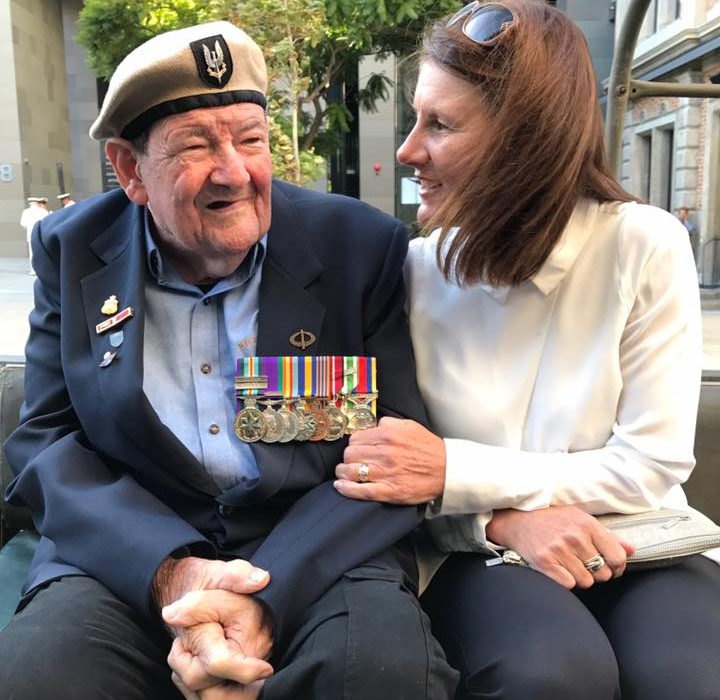5 lessons my dad’s dementia taught me
I learned almost everything I know about dementia from my dad. At 74 his Alzheimer’s disease is very advanced and he lives in a brilliant care home.
But the story of how dementia unraveled him and the lessons that taught me began over a decade ago.
I’ve written and spoken about how this intensely challenging experience deepened my understanding and love for a man I hadn’t always liked or respected.
Everyone responds differently to a love one’s descent into dementia.
However, lots of us feel isolated and desperate when we’re confronted by the grief and chaos that accompanies a diagnosis and everything that follows.
The positive response when I’ve shared my story has encouraged me publish the essence of it here.
It’s easy to miss the early signs of dementia
It was difficult to pinpoint the beginning of dad’s illness. He behaved erratically for lots of reasons we knew about but never fully understood.
He was an SAS soldier and Vietnam veteran belatedly diagnosed with Post Traumatic Stress Disorder.
He was a funny, loyal, hard-wired tough bastard given to horrendous mood swings.
He drank heavily.
The bush and fishing and camping helped him cope with civilian life. When he broke down crying after hours trying to pitch a tent we knew something was wrong. So began a period of muddle and loss and exhaustion before a vague diagnosis of alcohol related dementia.
Apparently, the damage was done. But dad was advised that giving up drinking would halt the carnage. Eventually he stopped, joking that he’d rather forget his drink than drop it’. Despite this, his dementia got steadily worse.
Grieve for the person you’ve ‘lost’
Dementia deprives you of the familiar adored and infuriating person you know and love. Most of your reliably, well-worn ways of relating successfully cease to work. Acknowledging this difficult disruptive truth is the key to accepting your loved one as they are.
Be present for the person who’s there
I’m not being glib here – not for a moment. Dealing with dementia is grueling and exhausting and heart breaking. Nothing changes that.
However, letting go of expectations and accepting my dad as he is made a huge difference to how we both coped.
In the midst of the tough stuff some things were ‘hilariously sad’. For a time my super macho dad emerged dressed for the day in mum’s clothes. Instead of swallowing his medication he’d stick the pills between his toes. Seeing the fun in these random actions was an excellent coping strategy.
I’ve also learned to let our conversations take their own surreal course free of the sorts of logical links I’m used to. Despite not being lucid, dad still recognises the feeling of sharing and connecting in conversation.
As dementia stripped away the layers of my dad’s personality and life I knew, I saw vulnerability and humanity he’d buried since forever. I saw the boy aged twelve grieving for his dead mum, the frightened soldier anxious to protect his troops, the husband and father full of regret. I understood how trauma had scarred this gentle, funny beautiful man.
Stay connected as a family
Don’t let the gut wrenching decision to move your loved one into care rupture their connection to family.
Some of the best moments in our family life with my dad have happened since he went into care. He is calmer than I’ve seen him in years and we have the energy to take him on the kind of adventures in nature that he always loved. These outings help us to heal as a family and they’re vital to dad’s happiness and well-being.
Find joy in the experience
Ideally, I would have wished my dad the kind of healthy, contented old age he was never going to have. I would have loved my mum and my siblings to have been spared the distress of watching him lose his mind.
In reality and despite everything I’m deeply grateful for the things my dad’s illness has taught me.
Caring for him as his dementia unfolded showed me that behind challenging behaviours are complex, complete people in pain. I learned that the people who are hardest to love are the people who need love most.
I’m also wary of the potential of alcohol to bring us undone. After four teetotal years I now enjoy a glass of wine on special occasions. Aside from that I don’t drink.
If you’d like to purchase a copy of the book I’ve co-authored on dad’s journey for $20 or have me speak at your work place or event on my personal experience with dementia please – get in touch.
Keynote presentations to inspire and energise


Recent Comments